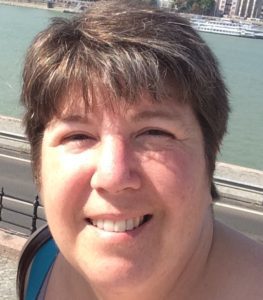By MyKaila Young, LEV Intern

At the League of Education Voters (LEV), we recognize all of the hard work that you do toward improving public education across Washington state. We are pleased to announce our Activist of the Month for January: Heather Wallace.
Every New Year brings the opportunity for infinite possibilities. As the year begins, I’m sure you wonder about all the people, events and experiences that will occur over the next 364 days. Being in the right place at the right time opens the right doors to many of the great experiences and people that will make the year worthwhile, and that was the case for Heather Wallace when she crossed paths with LEV Spokane Regional Field Director Sandra Jarrard.
Heather’s background is in sociology, and she is connected with the importance of what many may call “Overall Life Experience.” One thing that stood out to me about Heather was that she’s not concerned with numbers and statistics, but how things really are and ways to address issues that may be viewed as broken or problematic.
For 15 years, she worked mainly with adolescents and then went on to the administrative level of medical management. When she wasn’t making an impact in the way she had envisioned, she did something about it and went back to school and eventually attained a Masters in Communication and Leadership Studies with a focus in dialogue and community development. She currently works at Spokane Regional Health District in a program that she very much enjoys called Neighborhoods Matter. This is a program that focuses on the social determinants of health and how to improve neighborhoods to in turn improve the overall health of the community at large.
Neighborhoods Matter works directly with residents to identify their neighborhood’s health and safety concerns, and then they work to address these concerns in the best way possible. They leverage community resources and focus on how to connect and advocate for safer neighborhoods. Heather says, “Safe neighborhoods mean people are out more and active, which contributes to long-term success.”
With the help of LEV, the Inland Northwest Early Learning Alliance, and the Spokane Regional Health District, Heather put together a conference that focused on realistic accountability. Sometimes quality is better than quantity, and that was surely the case for last month’s Spokids 2020, where the overall experience and discussion contributed to great strides for changes and hopes in 2017. Being lower in numbers but higher in perspectives allowed people to come together in a way that allowed many thoughts and ideas to come together and move forward. Collectively, everyone came up with action plans to help envision how that will look.
With so many organizations working to improve education and support families in need, and all the many changes that occur within various positions at numerous organizations, Heather sees great work being done at many different levels, which is something that is encouraging to us all.
The Spokids 2020 conference was a great way to figure out how similar organizations and families could come together, develop common goals, and leverage partner organizations to work together with the idea of a common community goal. Heather’s common community goal is that all children in Spokane County will achieve social-emotional readiness by kindergarten.
Next month, Heather hopes that word will spread about Spokids 2020’s useful discussions in order to home in on specific projects and areas of focus that will be able to identify success and how conference participants plan to measure progress as a group.
From a public health perspective, social-emotional health serves as the foundation for academic indicators and how likely a child is to succeed. Addressing these issues are imperative because if students are living in unhealthy environments and don’t have access to primary medical care and their basic needs aren’t being met, especially on an emotional and social level, they can’t learn. Heather is advocating for student supports and ways to measure a child’s social-emotional health early in the education continuum, which will help with discipline and a wide range of other issues that teachers have in the classrooms.
A student’s behavior reflects their social-emotional health and not their intelligence. I think we can all agree that we shouldn’t blame the child for the shortcomings of a system that isn’t tailored to the needs of every student, but instead we should blame the lack of resources that prevents the child from moving forward. A start in the right direction until we can get adequate resources for all students is to figure out ways to positively impact a child’s social-emotional health, which is why Heather’s work is vital for communities throughout Washington state.
Heather has three daughters, and she hopes her daughters will find work that they are passionate about. She hopes that they travel and learn about other cultures, and go on to be lifelong learners. Heather says, “A paycheck will only take you so far, and if you can’t find meaning in the work that you are doing, then money will never make you happy.”